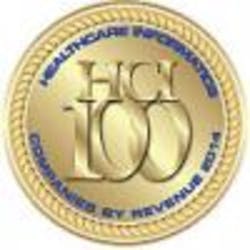To accompany our Healthcare Informatics 100 list of the largest companies in health information technology, we like to give readers a heads-up on some fast-growing companies that could very well make the HCI 100 in years to come. Throughout the week, leading up to the release of this year’s HCI 100 list on May 19, we will profile companies that have caught the attention of investors and analysts by addressing pressing needs in the industry with elegant, sophisticated solutions. So far they have been able to execute on the business side, managing the challenges of growing from startups to well-established companies.
Sometimes it pays to listen. A few years ago when he served as executive chairman of The Advisory Board Company consulting firm, Frank Williams went on a listening tour of health system CEOs, and he heard a consistent message: the economics of healthcare were changing rapidly with the shift to population health, and the executives felt overwhelmed with everything on their plates, including implementing electronic health records and integrating physician practices. “The idea of building a population health capability and understanding the risk-based aspects was a bridge too far,” he says. “They said if you could put together an organization that could create shared infrastructure for the nation’s leading health systems and then create a national network, we would be really interested in participating,” Williams recalls.
Today, Williams is CEO of an organization that is doing just that. Evolent Health, Arlington, Va., initially funded in 2011 with $25 million from The Advisory Board Company and the UPMC Health Plan, has grown to 550 employees and is working with health plans in 20 markets, including Piedmont Healthcare, WakeMed Health, and WellStar Health System. Last year it received an additional $100 million investment from UPMC, The Advisory Board, and TPG Growth. Williams has surrounded himself with a strong leadership team, including Seth Frazier, who previously served as chief transformation officer for the Geisinger Health System.
Asked how he has been able to attract top talent, Williams says, “I think there are a lot of people who have been in the industry a long time and were either very locally focused or were working in models that just haven’t delivered the desired result; so the idea of creating an organization that was national in scope and innovative was very attractive.”
Frank Williams
Williams uses Evolent’s relationship with Indianapolis-based Indiana University Health to describe what the company does. He and his colleagues started out with a traditional consulting engagement to develop the business and operating plan the system would need to guide a five- to 10-year investment in population health. Once that plan was approved by the board, Evolent began putting in the infrastructure required, including the Identifi technology platform initially developed at UPMC.
“Then we actually begin managing populations, and in the case of IU Health, we are putting dozens of Evolent employees on the ground as the coaches and care managers,” Williams says. “We are working with the physicians and rolling out clinical programs to measure results, make adjustments and improve health and lower costs for that population we are managing.”
Williams says the upfront strategic planning is done on a traditional consulting-fee basis, but Evolent likes to be an aligned partner with skin in the game over the long haul. “We are open to all sorts of different models as we share in success and risk,” he says. “With some partners, we are sharing in the upside we are creating and taking lower fees upfront; others prefer to pay fees and have a much smaller portion on a performance basis.”
Williams says his experience with The Advisory Board has helped Evolent get in the door of the major health system CEOs. “There is a huge need and interest in what we are doing,” he says. “There are so many vendors offering tools and component solutions, yet there are very few organizations that are linking it all the way back to strategy and offering a complete integrated approach,” he says. “We have tried to align ourselves as a full partner that can take accountability for success in what they are doing. Demonstrating that we can deliver consistently across multiple markets is what 2014 is about,” Williams says. “We have been very successful in getting health systems to work with us and had good early results, but now we are proving that we can work across multiple markets and do it at scale.”



